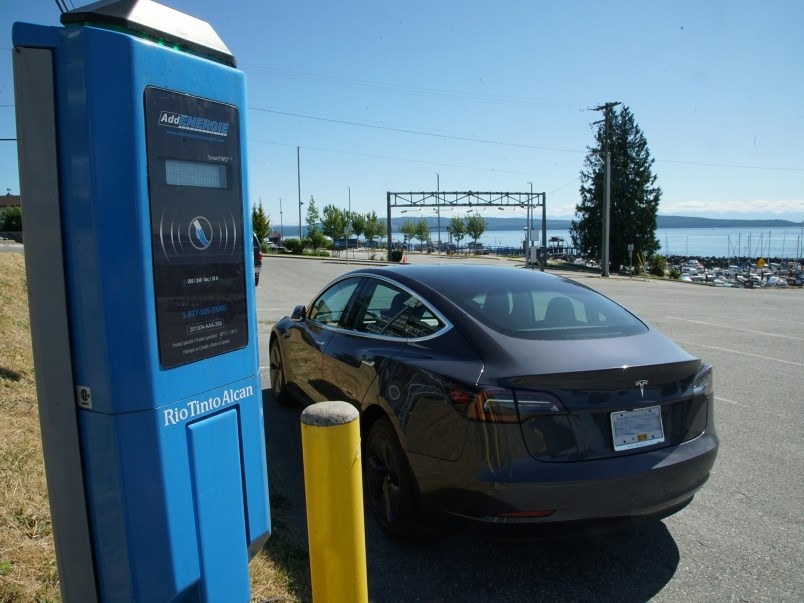Correspondence from a resident to Powell River city council has requested that the financial structure for electric vehicle (EV) charging be altered.
In the correspondence, reviewed at the November 3 committee of the whole meeting, Max Ferrier pointed out that in March 2020, council voted to charge $2 an hour to charge electric vehicles at the city’s EV stations. The city had previously provided free charging.
Ferrier stated that the cost of charging at a level two EV is between 85 cents and $1.40 an hour. He added the whole thrust of free charging EVs was to encourage people to buy and use an EV, therefore reducing atmospheric pollution.
Ferrier stated that since the city instituted these charges, he has yet to see anyone plugged into one of the city’s EV charge points.
Ferrier suggested the city reinstate the free charge for one and a half hours, charge $2.50 an hour from one and a half to three hours, and $5 an hour from then on.
At the meeting, councillor CaroleAnn Leishman, chair of the climate change mitigation and adaptation committee, said the sustainability planner had looked into whether the app for the chargers could do tiered charging but the system cannot do that.
Leishman said the reason for establishing a financial charge was to prevent people from leaving their vehicles on the chargers for a long period of time, leaving other people who needed to charge their EVs unable to do so.
“It was an early adoption incentive to have the charging stations be free to encourage people to purchase electric vehicles, but at this time I would not want to go down the road of providing free charging,” said Leishman. “I did ask some people who are considering purchasing electric vehicles whether they thought taxpayers should be paying for their recharging and people did not agree that it was necessary.
“I don’t think taxpayers should be paying for the energy use for people who can afford to purchase electric cars. They probably have a house to live in where they can charge at home. If anything, city council should be helping people who are struggling to make ends meet and provide them with free transit passes, not subsidizing people who can afford to charge their electric vehicles.”
Councillor Rob Southcott said the writer of the correspondence was a friend of his, and Southcott said he thinks the writer’s intentions were good, because he wanted to make a suggestion about how to recover costs. Southcott said, however, that he thinks the city is being generous. He said the current policy should encourage people to unplug and make the charging stations available to other vehicles.
Councillor Maggie Hathaway said she appreciated the input from the taxpayer but she thinks the city has spent a great deal of time on the matter and she stands by the decision to charge and thinks it should be left as it is.
Councillor Jim Palm said he appreciated the concern of the letter writer but one of the rationales was to prevent people from leaving their cars plugged in at the charging stations and not allowing other people to use them.
“If we can alleviate people from the charge stations we can better serve the tourists coming into the region,” said Palm. “More people will adapt to charging at home and that reduces the burden on our few standalone charging stations in the city. Councillor Leishman has it absolutely right and I support her 100 per cent.”
Councillors voted to receive the letter.



